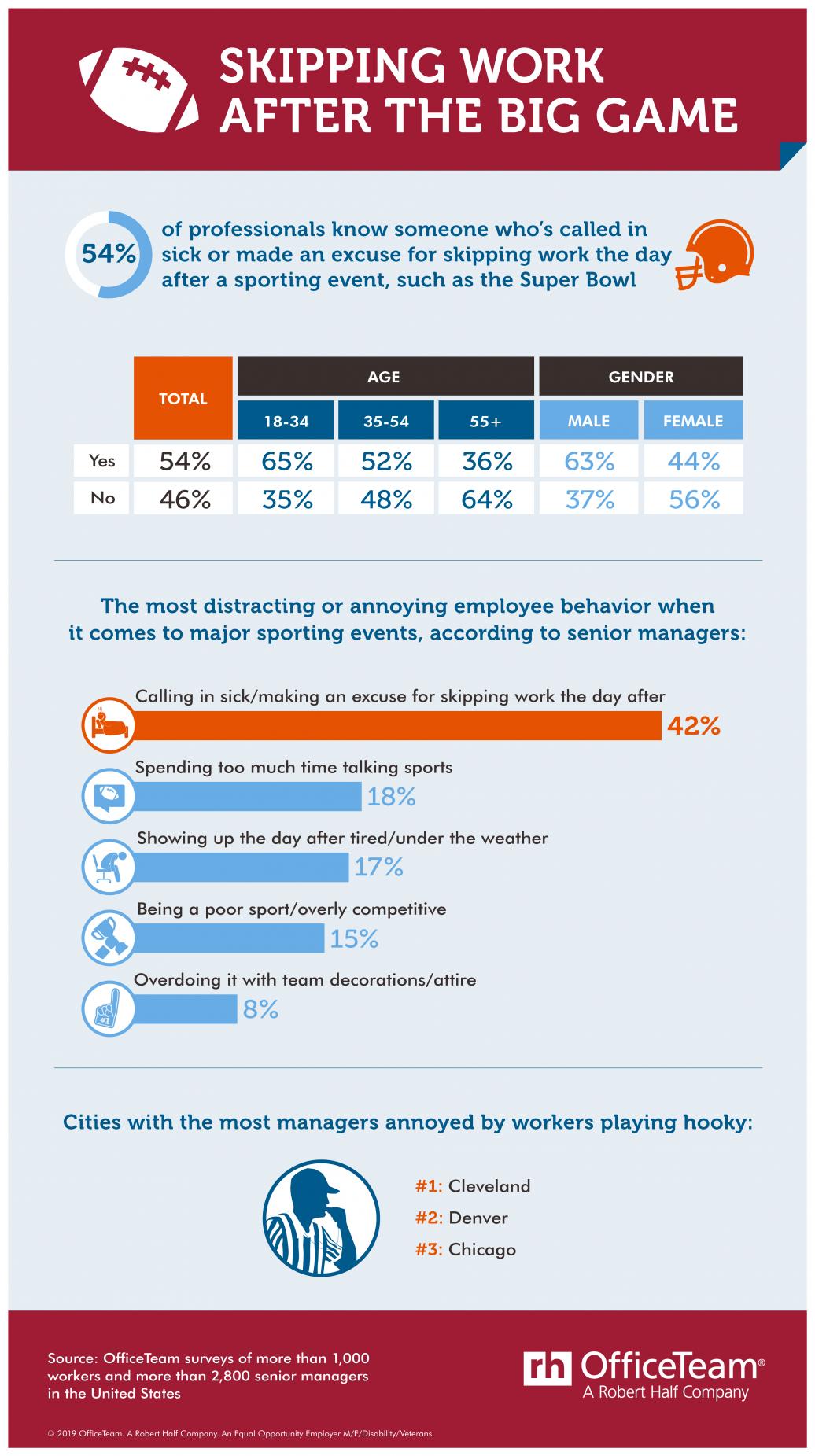Employee absenteeism after major sports events like the Super Bowl is on the rise, suggests new research from staffing firm OfficeTeam. More than half of professionals (54 percent) know someone who’s called in sick or made an excuse for skipping work following a big game. That’s up from 41 percent three years ago. In a separate survey, senior managers identified playing hooky the day after (42 percent) as the most distracting or annoying employee behavior when it comes to sports, a 20-point jump from a similar survey in 2017.
Enlarge this infographic.
Workers were asked, “Do you know anyone who’s called in sick or made an excuse for skipping work the day after a sporting event, such as the Super Bowl, NBA Finals or World Series?” Their responses:
|
Yes |
54% |
|
No |
46% |
|
100% |
Senior managers were asked, “Which of the following is the most distracting or annoying employee behavior when it comes to major sporting events?” Their responses:
|
Calling in sick or making an excuse for skipping work the day after |
42% |
|
Spending too much time talking sports |
18% |
|
Showing up the day after tired or under the weather |
17% |
|
Being a poor sport or overly competitive |
15% |
|
Overdoing it with team decorations or attire |
8% |
|
100% |
Additional findings:
- Professionals ages 18 to 34 (65 percent) most often said they know someone who’s played hooky following a major sports event, compared to those ages 35 to 54 (52 percent) and 55 and older (36 percent). Sixty-three percent of male employees admitted the same, versus 44 percent of women.
- Among the 28 U.S. cities surveyed, the most senior managers in Cleveland (56 percent), Denver (52 percent) and Chicago (51 percent) were annoyed by staff missing work the day after a big game.
“It’s easy to get drawn into the excitement of major sports events,” said Stephanie Naznitsky, executive director of OfficeTeam. “Employees can do their part to keep it business as usual by giving advance notice if they want to take a day off, keeping game discussions to a minimum, and following company guidelines for things like breaks and fan gear.”
Naznitsky added, “Managers may cut their workers some slack leading up to and after a popular event by offering schedule flexibility or organizing group activities to celebrate. It’s also a good idea to contact a staffing firm to help cover employee absences.”
Thanks for reading CPA Practice Advisor!
Subscribe Already registered? Log In
Need more information? Read the FAQs




